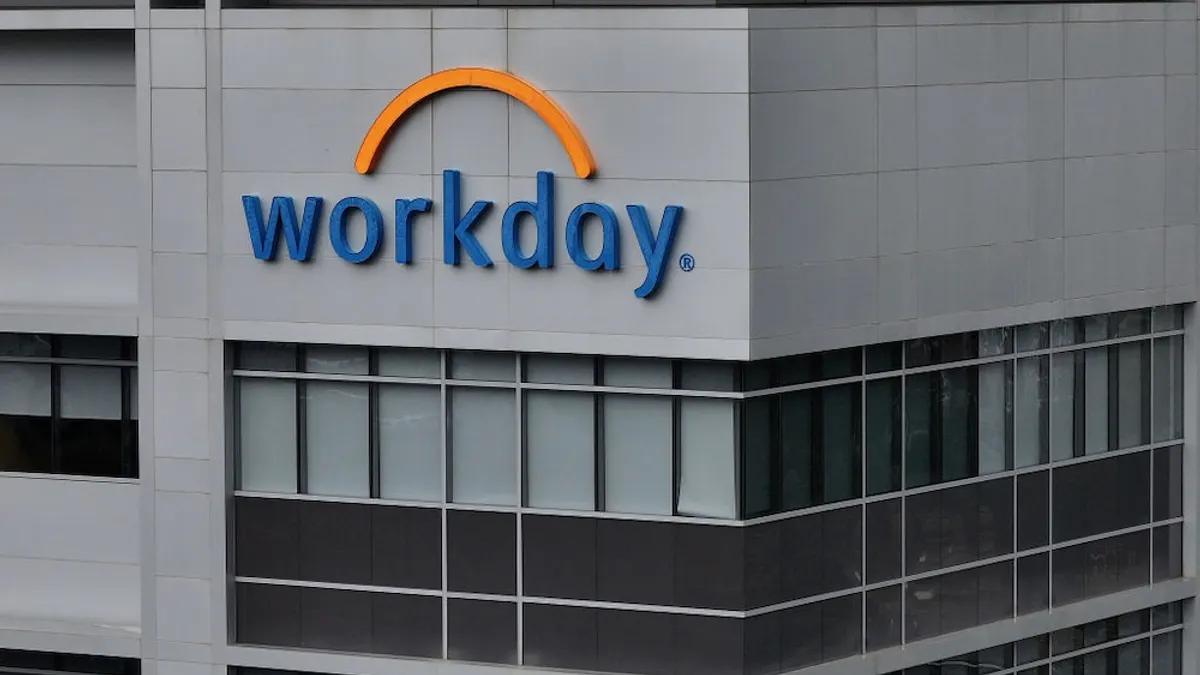Global anxiety over the potential for an economic recession is palpable. That could be stirring up some uncomfortable feelings, thoughts and memories for HR practitioners.
Worker sentiment is one indicator of the trend. A survey of 1,054 U.S. respondents by career advice site ResumeLab found that 82% said they believed the country will face a recession this year, and 80% said they were looking for a new job because of a potential recession. Nearly half, 45%, said they considered difficulty in finding a new job to be the worst recession-related issue.
Recent headlines point to a direct impact on HR that has already commenced, particularly within the technology sector. Earlier this month, Twitter announced layoffs affecting 30% of its talent acquisition team on top of a company hiring pause, The Wall Street Journal reported. Similar news of slowed hiring has accompanied other notable names, such as Google.
Though worries may be fresh in the mind of long-time HR leaders — particularly given the events of the Great Recession — it is important to understand what factors are unique to 2022’s economic situation, according to Jason Walker, co-founder and CHRO at Thrive HR Consulting.
“2008 was horrible, because virtually everyone was doing badly,” Walker told HR Dive in an interview. “You couldn’t look at a company and say that that company was doing well.”
But the fact remains that employers are still hiring in July 2022, even if the U.S. job market has lost some of the steam it gained since the pandemic began. That includes hiring for staffing and talent acquisition roles, Walker said.
Similarly, the enhanced role HR has enjoyed in recent years may impact outcomes. A combination of strong hiring demand and talent shortages within talent acquisition teams may further reduce the chances of job loss, Richard Cho, chief recruiting officer at recruiting technology firm Gem, told HR Dive in an email.
“I’ve seen more and more organizations wake up to the strategic importance of recruiting and the critical role that getting good people in the door plays in making a company successful,” Cho said.
Layoffs also are not necessarily a given in the event of a recession. Organizations are much more likely to respond to a downturn in the existing environment by closing open positions than conducting mass layoffs, said Brian Kropp, group vice president and chief of HR research at Gartner. Exceptions may be made for particularly turbulent industries such as cryptocurrency and mortgage lending, he noted.
What a near-term recession could do to HR
HR has a number of roles to play in helping organizations navigate downturns, Walker said. For example, HR departments are heavily involved in conducting head count elimination, helping organizations plan and analyze which positions may be let go in a fair and legal manner.
At the same time, certain nondiscretionary line items under HR’s purview are more likely to take a hit, Walker said, such as training, learning and development, and travel.

Other expenses will be more resistant to a downturn, such as compensation and benefits, because they are baked into company budgets ahead of time. “That will have an impact the next time you’re up for open enrollment the following year, if costs go up significantly and the company has to pay more,” Walker said. “You’ll probably get less benefits and your benefits will be more expensive, but I think that’s more of a year down the line as opposed to this year.”
Walker said he is even more certain that professionals in the diversity and inclusion space will not be significantly impacted by a potential recession, if at all, given the importance organizations have placed on the function in the last two years alone. “I don’t think anyone in that space needs to worry,” he added. “Any company that does that, they’re going to look so poor in the marketplace.”
Furthermore, many executives have realized the importance of talent to their overall business strategy, Kropp said.
“They’ve made a lot of significant investments,” he said of employers. “If they were to turn around and cut those investments, that would undermine a lot of messaging and storytelling they’ve been trying to accomplish as a company.”
Employers also will need to take into account that the downturn is likely to be “shallow,” Kropp added. Such a downturn, he said, might lead organizations to keep as much staff on as possible in order to prepare for when the economy returns to a growth phase.
‘Start polishing your resume’
The outlook may not be as dire as some expect, but HR professionals — particularly those in more vulnerable areas, like talent acquisition — should still make preparations, per Walker.
“If you’re in staffing or talent acquisition, there are definitely jobs out there,” he said. “Start polishing your resume. If it’s been a while since you’ve gotten in touch with your network, now may be the time to do that.”
Recruiters, in the event that their organizations begin to cut back on external hiring during a downturn, will need to demonstrate their understanding and capabilities around building talent from within, Kropp said.
“It sounds kind of silly, but when things are getting tough and times are tough, management wants someone who is easy to work with.”

Jason Walker
Co-founder and CHRO, Thrive HR Consulting
Diversity hiring initiatives are one of the best places for talent acquisition teams to demonstrate their value during this time, Cho said, especially given the aggressive hiring goals many organizations have in place. Recruiters also can use this time to experiment with their interview questions and strategies, conduct bias training, rework job descriptions and dig into company data to see where candidates may drop out of the hiring process.
“It may seem counterintuitive but a slowdown is actually an amazing time for TA teams to set themselves up to be better strategic partners to their companies when hiring ramps up again,” Cho said. “So many TA teams have been running around with their hair on fire for the last several months trying to fill roles that they likely haven’t been able to focus on anything else.”
On a more basic level, HR needs to make itself as valuable as possible and as indispensable to the systems in which it operates, Walker said. That includes bringing a positive outlook to work and volunteering to take on tasks others shy away from, he added.
“It sounds kind of silly, but when things are getting tough and times are tough, management wants someone who is easy to work with,” Walker said. “If you do all those things, that’s super valuable for a company right now, especially when a company is losing staff and you need to step up within the HR team.”
Kropp said that HR will need to demonstrate a perspective on key decisions that looks beyond the HR team itself and onto broader organizational strategy. HR also can ensure that the organization’s decision-making reflects its values.
“If you’re sitting there wondering whether we should do this or not — should we increase benefits or not, should we decrease head count, should we get involved in the Roe debates — you need to ask this question: What are the values we believe in as a company?” he said. “Given those values, what is the right answer to this problem?”





















